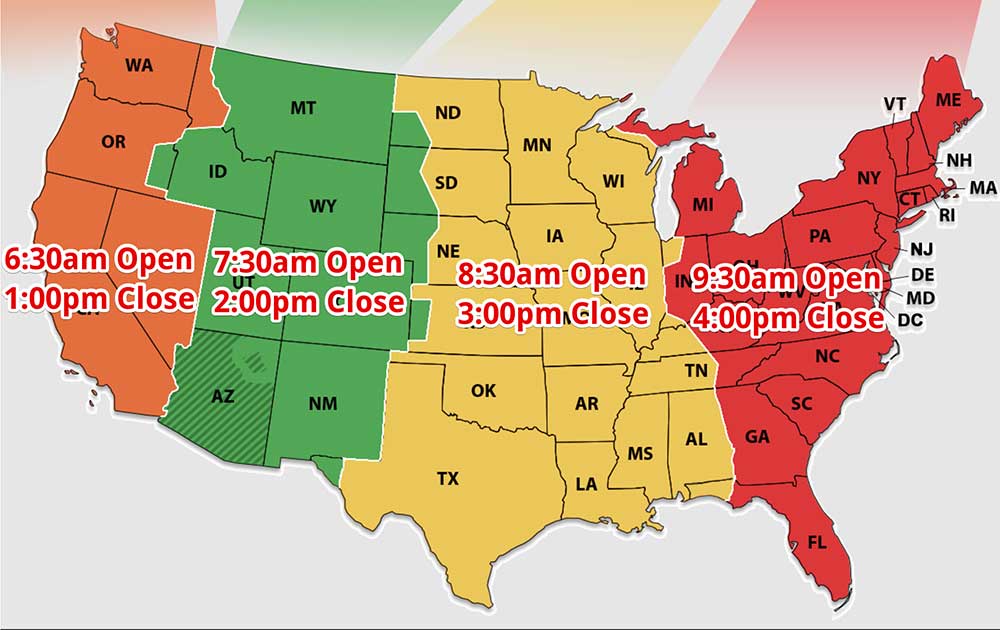Navigating the Stock Market in 2025: A Guide to Understanding Holiday Closures
Related Articles: Navigating the Stock Market in 2025: A Guide to Understanding Holiday Closures
Introduction
In this auspicious occasion, we are delighted to delve into the intriguing topic related to Navigating the Stock Market in 2025: A Guide to Understanding Holiday Closures. Let’s weave interesting information and offer fresh perspectives to the readers.
Table of Content
Navigating the Stock Market in 2025: A Guide to Understanding Holiday Closures

The stock market, a complex and dynamic system, operates on a schedule that is influenced by numerous factors, including holidays. Understanding these closures is crucial for investors, traders, and anyone seeking to engage with the market. This article provides a comprehensive overview of stock market holidays in 2025, explaining their significance and offering insights for navigating the market during these periods.
The Importance of Holiday Closures
Stock market holidays serve several key purposes:
- Observance of Cultural and Religious Festivals: These closures allow for the recognition and celebration of important cultural and religious events, ensuring that market participants have the opportunity to participate in these observances.
- Employee Well-being: By closing the market on holidays, employees are granted time to rest, recharge, and spend time with loved ones, contributing to overall well-being and productivity.
- Market Stability: Holiday closures provide a necessary pause in the continuous flow of trading activity, allowing for a period of reflection and analysis. This can help to prevent market volatility and ensure a more stable environment for trading.
Stock Market Holidays in 2025
The following is a list of anticipated stock market holidays in 2025, based on current information and historical trends. It is important to note that this information may be subject to change, and it is always advisable to consult official sources for the most up-to-date information:
January:
- New Year’s Day (Monday, January 1): Observed as a national holiday in the United States, the New York Stock Exchange (NYSE) and the Nasdaq Stock Market will be closed.
February:
- President’s Day (Monday, February 17): This holiday, commemorating the birthdays of George Washington and Abraham Lincoln, is observed as a national holiday in the United States, resulting in market closures.
May:
- Memorial Day (Monday, May 26): This holiday, honoring those who have died in military service, is observed as a national holiday in the United States, leading to market closures.
July:
- Independence Day (Friday, July 4): This holiday, celebrating the Declaration of Independence of the United States, is observed as a national holiday, resulting in market closures.
September:
- Labor Day (Monday, September 1): This holiday, celebrating the achievements of workers, is observed as a national holiday in the United States, leading to market closures.
November:
- Thanksgiving Day (Thursday, November 27): This holiday, celebrating the harvest and giving thanks, is observed as a national holiday in the United States, resulting in market closures.
- Black Friday (Friday, November 28): While not a traditional stock market holiday, the NYSE and Nasdaq typically remain closed on Black Friday, the day after Thanksgiving, due to the volume of retail activity and employee schedules.
December:
- Christmas Day (Wednesday, December 25): This holiday, celebrating the birth of Jesus Christ, is observed as a national holiday in the United States, leading to market closures.
- Boxing Day (Thursday, December 26): While not a traditional holiday in the United States, the NYSE and Nasdaq may choose to remain closed on Boxing Day, a holiday observed in many Commonwealth countries.
Navigating the Market During Holiday Closures
While stock markets are closed on holidays, investors and traders can still engage with the market in several ways:
- Pre-Market and After-Hours Trading: Some brokerage platforms offer pre-market and after-hours trading, allowing investors to place orders outside of regular trading hours. However, it is crucial to be aware of the potential for increased volatility and limited liquidity during these periods.
- Market Research and Analysis: Holiday closures provide an opportunity to conduct thorough market research and analysis, reviewing company financials, industry trends, and economic indicators. This can help to inform trading decisions when the market reopens.
- Portfolio Review and Adjustments: Holiday closures provide a valuable opportunity to review and adjust existing portfolios, considering market conditions, risk tolerance, and investment goals.
Frequently Asked Questions (FAQs)
Q: Are all stock markets closed on holidays?
A: While most major stock exchanges, such as the NYSE and Nasdaq, are closed on holidays, some smaller exchanges or international markets may remain open. It is essential to check the specific schedules of the exchanges you are interested in.
Q: Can I buy or sell stocks during a holiday closure?
A: No, you cannot buy or sell stocks during a holiday closure. Regular trading hours are suspended, and no transactions can be executed.
Q: What happens to my existing orders if the market is closed?
A: Orders placed before the market closure will be executed when the market reopens. However, it is important to note that market conditions may have changed during the closure, potentially impacting the execution price.
Q: What should I do if I need to trade during a holiday closure?
A: If you need to trade during a holiday closure, consider using pre-market or after-hours trading options offered by your brokerage platform. However, be aware of the potential for increased volatility and limited liquidity.
Tips for Navigating Holiday Closures
- Stay Informed: Monitor official announcements from the NYSE, Nasdaq, and other relevant exchanges to stay updated on holiday closures and any potential changes.
- Plan Ahead: If you anticipate needing to trade during a holiday closure, consider using pre-market or after-hours trading options and be prepared for potential volatility.
- Utilize the Time Wisely: Holiday closures provide a valuable opportunity to conduct market research, review portfolios, and make informed investment decisions.
Conclusion
Understanding stock market holidays is crucial for investors and traders seeking to navigate the market effectively. By acknowledging these closures and planning accordingly, participants can optimize their trading strategies and make informed investment decisions. Staying informed about holiday schedules, utilizing available resources, and taking advantage of the time provided by these closures can contribute to a more successful and rewarding investment experience.



1679429398426.jpg)
.jpg)


Closure
Thus, we hope this article has provided valuable insights into Navigating the Stock Market in 2025: A Guide to Understanding Holiday Closures. We hope you find this article informative and beneficial. See you in our next article!
